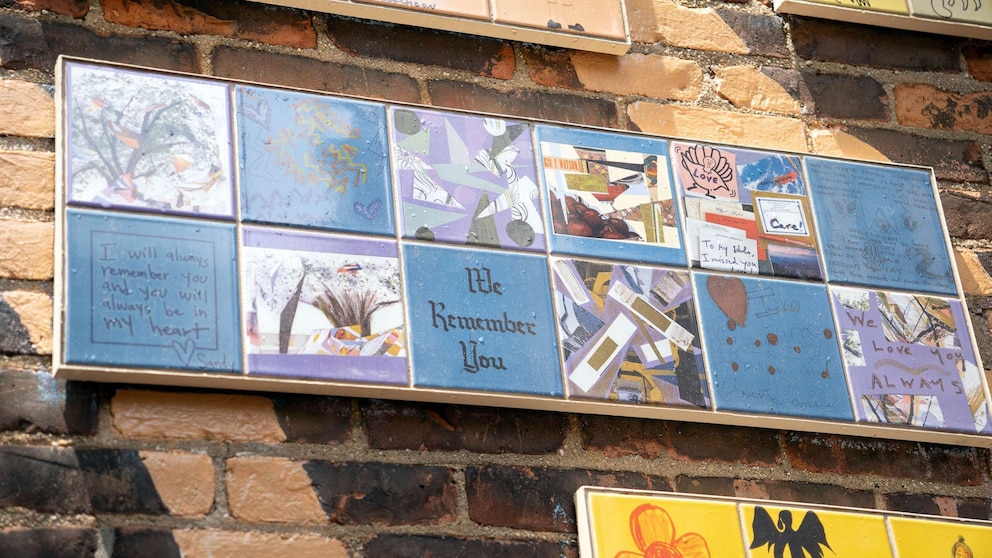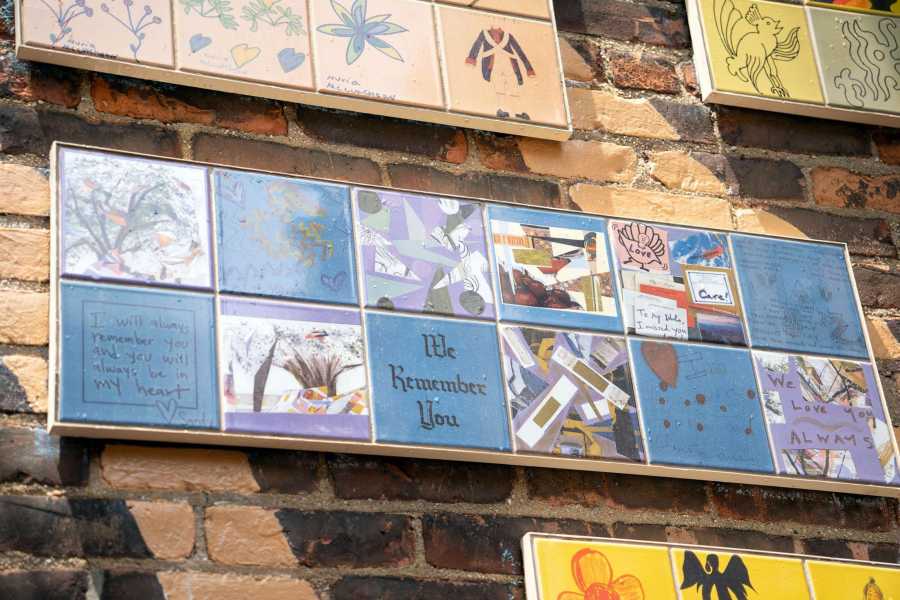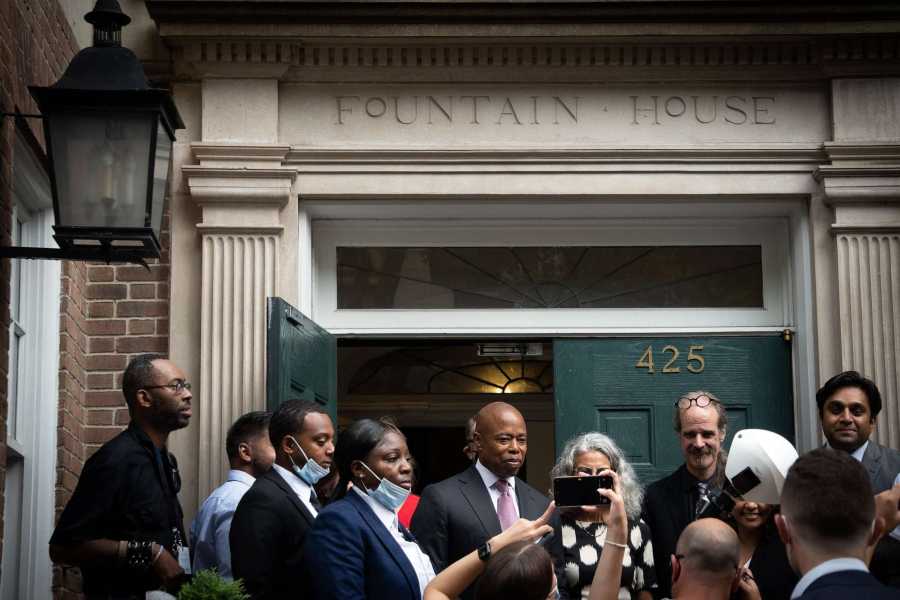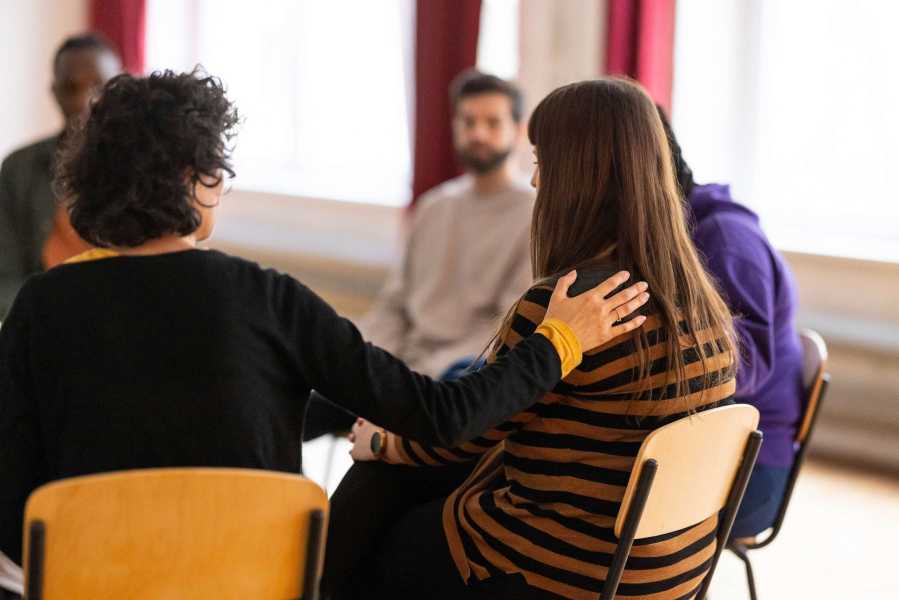
Benny Polatseck/Mayoral Photography Office, FILE
Clubhouses have been a mental health service that a New York City official said was right "under our noses" for over 75 years.
The model invites people with depression and other mental health conditions into a temporary home where they are surrounded by peers and counselors and given resources for their conditions as well as employment training.
"The place is the community therapy," New York City Health Commissioner Dr. Ashwin Vasan told ABC News. "It serves as an anchor."

New York City Mayor Eric Adams tours a Fountain House mental health clubhouse, July 18, 2022.Benny Polatseck/Mayoral Photography Office, FILE
Two weeks ago, New York's health department announced a $30 million investment into more clubhouses, doubling the investment from previous years.
Katherine Keyes, a professor of epidemiology at Columbia University Mailman School of Public Health, told ABC News that the city's announcement is welcoming as studies have not only shown that clubhouses have success in helping patients get back on their feet but also reduce hospitalizations and incarcerations.
"It has a high probability of making a difference," Keyes said of the city's new funding.
The first clubhouse was the Fountain House in Manhattan which was established in 1948, when former patients of a mental institution decided to meet informally and discuss their conditions, according to Vasan.
Through the years, the clubhouse model kept getting refined as psychiatrists, social workers and mental health experts added more expertise and methods to the meetings.
Keyes said the clubhouse model is a good system for patients needing a holistic treatment and recovery approach.
"This clubhouse model not only allows for coordinated courses for care but also ones that provide social determinants of mental health and that sense of being part of a community," she said.
Fountain House's methods became effective and emulated by other mental health groups. Today, there are 16 clubhouses in New York City and over 200 throughout the country, Vasan said.

New York City Mayor Eric Adams tours a Fountain House mental health clubhouse, July 18, 2022.Benny Polatseck/Mayoral Photography Office, FILE
Roughly 5,000 individuals are served by New York City clubhouses, according to the health department.
Vasan added that studies have shown that clubhouses help reduce the number of hospitalizations and incarcerations in their local cities.
"If a person shows signs of descending into crisis, this community can help them out and get their head above the water," he said.
The commissioner acknowledged that despite clubhouses' benefits, the city didn't do enough to encourage the model's growth.
"It was stigma," Vasan said of the past lack of city support for clubhouses. "Not just stigma at the interpersonal level and stigma at the institutional level. We have not prioritized the needs of those with severe mental illness."
In the last decade, however, Vasan said the city's health department has been taking a new look at mental health treatment models such as clubhouses.
As part of its proposal, the health department issued a request for proposals from organizations looking to set up a clubhouse with a focus on "enhancing clubhouse quality, improving member experience, and expanding referral pathways to support those with serious mental illness."
The health department said it anticipates an additional 3,700 people to take part in clubhouse programs from the new funding.
"What are we going to build and take this model that has been right under our noses and supercharge it to the future," Vasan said.
Keyes said that the money is crucial for success in the clubhouse model because the treatment requires a significant amount of resources, manpower and time to be effective.

Group therapy meetingSTOCK PHOTO/Getty Images
"In any type of healthcare setting, just providing the facility itself is not enough. You need to tend to all the different aspects of that community space," she said.
Vasan said he is confident that the additional funding for city clubhouses will make a difference and hopes that other cities around the world can follow suit.
"It's about improving the system. We're turning the taps on after decades of starving this system for resources," Vasan said.
Sourse: abcnews.go.com






